#gavarnie
Explore tagged Tumblr posts
Text

"Départ pour Gavarnie (Hautes-Pyrénées) Garage St. Christophe" carte postale ancienne, non datée. - Source EBay.
10 notes
·
View notes
Text

#Pyrénées#gavarnie#mountains#lovely#my art#nature photographers#Louis Vuitton Louis Vuitton Louis Vuitton#goyard#brandbag#books & libraries#kate moss
10 notes
·
View notes
Text

Cirque de Gavarnie, Hautes Pyrénées, Mai 2023.
3 notes
·
View notes
Text



Gavarnie, Gavarnie-Gèdre, France
Tim Oun
1 note
·
View note
Text

Paul Gavarni, L'Artiste: Far-Niente ("the artist doing nothing"), 1835.
#paul gavarni#Eighteen-Thirties Thursday#1830s#men's fashion#romantic era#1835#interiors#gavarni and his super-detailed scenes <3#get a load of this guy's headwrap#romanticism
544 notes
·
View notes
Text

Paul Gavarni, Le Carnaval à Paris, Les Bals masques, 1830s.
Chez Aubert & Cie & Chez Bauger, Paris s.d. (1842 et 1839), 25,5x34cm, relié.
For sale: EditionOriginale
Paul Gavarni was the pen name of Sulpice Guillaume Chevalier (13 January 1804 – 24 November 1866), a French illustrator, born in Paris. (x)
#Paul Gavarni#gavarni#lithograph#litho#paris#carnaval in paris#les bals masques#antique#edition-originale#carnaval#masque#glorious masquerade#masquerade ball#art#french art#Sulpice Guillaume Chevalier#french illustrator#illustrator#illustration#illustrative art#masquerade
83 notes
·
View notes
Text
So I've seen people in the fandom do it for their country, I loved so much the idea I did the same (i'm very influencable).
(Based on the lore/maps of the webcomic "Stand Still Stay Silent")
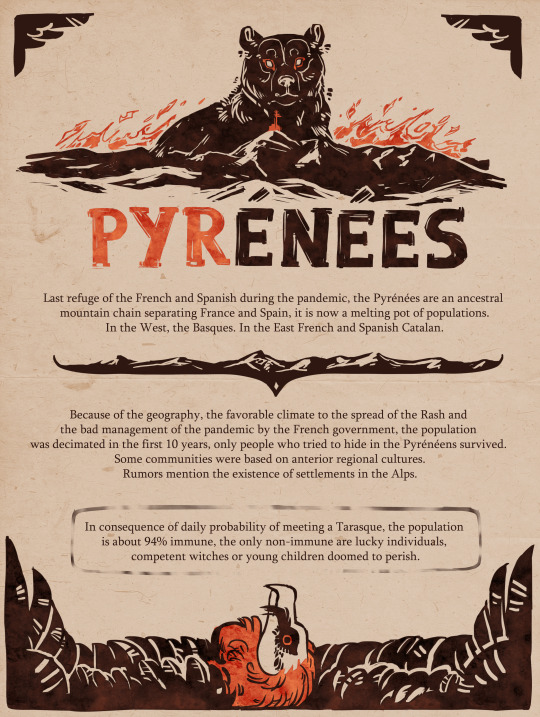
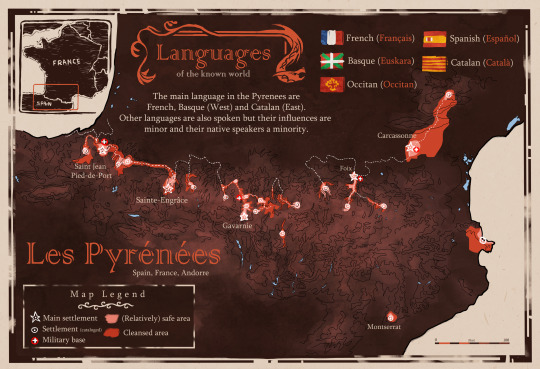
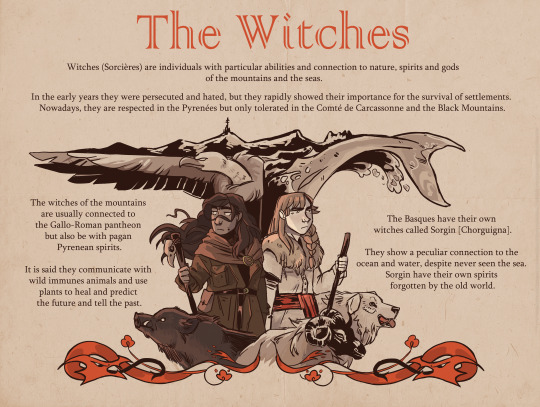

Even if I did know it could not fit the canon, I tried my best to do the more accurate (non-canon) lore for french territory.
I will maybe do a part 2 but not now, I will talk more about the infected and the Basques language.
The Tarasques are the french equivalent of the Trolls, I didn't have the energy to add other pages of information. (one day maybe)
I also wanted to mention the Dahu in the type of infected beast. (Yes there are Dahus, and that's is the best thing to know about infected beast, THERE ARE DAHUS INFECTED BEAST PEOPLE.)
______________________________________________________________
(Also can't spell in english so that's not very well written lol)
(Please note I'm just doing this for fun and it's a very rough/sketchy idea and I didn't take time to well adapt everything or even have a stylise coherence)
#my art#my artwork#sssscomic#stand still stay silent#Stand still stay silent comic#stand still stay silent fanart#fanart#Summer bear art#webcomic fanart#digital art#fanmade#fanmade map#artists on tumblr#pyrenees mountains#french folklore#fun fact#did you know until 2015 Icelanders could murder Basques legally#well now you know#it's because of whales#I passed to much time on this stuff#I think I hyperfocus on the task and forgot time exist#Half of the clean area are places I've been and the other is random#Gavarnie is very nice#love this place#Also#so sorry if there are any mistakes in English#I can't spell lol#(neither in french and english)#love dyslexia#and my dumb ass
233 notes
·
View notes
Text
Josephine Junot's love affair
As a young woman, Josephine Junot, the oldest child of Jean-Andoche and Laure Junot, entered a convent, possibly against her family's wishes. However she was not a nun but a canoness, meaning that she took no permanent vows and did not renounce her property, implying that she did not intend to stay there forever. Indeed in 1832, at the age of thirty, she returned to Paris to meet with a bishop, and then stayed with her overjoyed family instead of returning to the convent.
During Josephine's absence, Laure Junot had published her infamous memoirs and the Junot family became acquainted with many of the great writers of the time. Around 1830 the writer Honoré de Balzac, then lover of Laure Junot, introduced to the salon his friend Paul Gavarni, an illustrator. Gavarni soon became close friends with Laure and her three younger children: Napoleon, Alfred and Constance.
Josephine Junot was introduced to Paul Gavarni shortly after her return to Paris, and the two became fast friends. Gavarni became fascinated by this beautiful yet modest woman, two years his senior, and promptly developed romantic feelings for her. However Josephine retained her strong religious principles, quite contrary to Gavarni's more libertine views, and insisted that they should see each other as brother and sister, nothing more. Gavarni complied with her wishes, and even in letters with strong romantic undertones he still called her 'ma sœur'. In these letters there is no burning passion or desire for physical intimacy, but a deep admiration of the 'pure flower' of Josephine's soul.
The couple did not want to marry, each for different reasons. Gavarni did not believe marriage would suit him due to his independent spirit. Josephine was still committed to the life of a canoness, and even if she did wish for marriage, she would not marry a man unless he was a devout Christian, and Gavarni was a non-believer. Josephine felt that he was putting his good soul to waste by being an atheist, and tried to convert him - but her efforts had a rather unexpected consequence, as Gavarni wrote to her that his only religion was worship of her.
Over the course of the 1830s, their relationship, still a mix of romantic and platonic affection, went through several struggles. Napoleon Junot informed his sister that him and Gavarni often went to parties together and partook in a rather libertine lifestyle. Josephine was furious and harshly rebuked Gavarni; he fervently apologised ('forgive me, I'm on my knees, forgive me') but also defended his actions and said she was being unfair.
Josephine spent the decade oscillating between the convent and her family in Paris, committed as ever to her Catholic values. Gavarni began to feel frustrated by her serious disposition and her prioritisation of religion above all else.
While Josephine had returned to the convent for a few months, Gavarni spent a brief period of time in a debtors prison in Clichy. When he was released a letter from Laure Junot was waiting for him, demanding, out of concern for her daughter, that he either convert to Christianity and marry Josephine, or end the romantic aspect of their relationship. Gavarni chose the latter.
Although there was initially bitterness between the couple after this, they eventually reconciled as friends. On 1st December 1841, Josephine married Jaques-Louis (christened James) Amet, and in 1843 she gave birth to a daughter, Valentine Amet, who later married Comte Charles de Moüy. Upon Josephine's death in 1888, Valentine de Moüy found in her mother's bedroom a collection of letters from Paul Gavarni, available to read here.
17 notes
·
View notes
Text
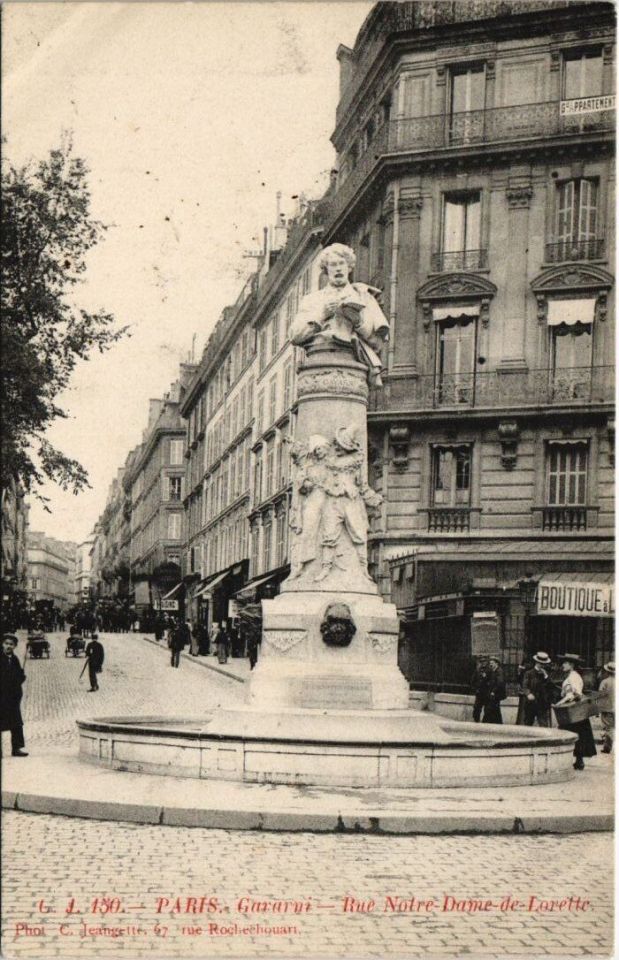
Gavarni's Statue in the 9th district of Paris
French vintage postcard
#historic#briefkaart#statue#postkaart#carte postale#ephemera#paris#tarjeta#photo#postcard#postal#gavarni's statue#postkarte#gavarni#ansichtskarte#district#french#sepia#photography#vintage
36 notes
·
View notes
Text

Gavarnie-Gèdre, Hautes-Pyrénées.
49 notes
·
View notes
Photo
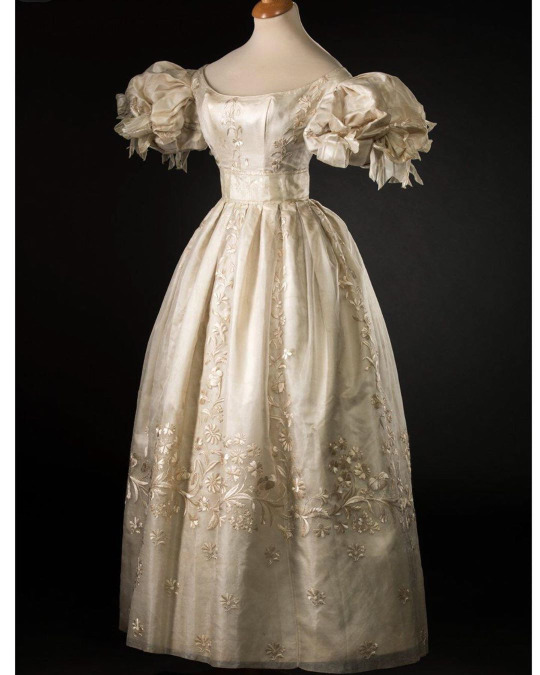
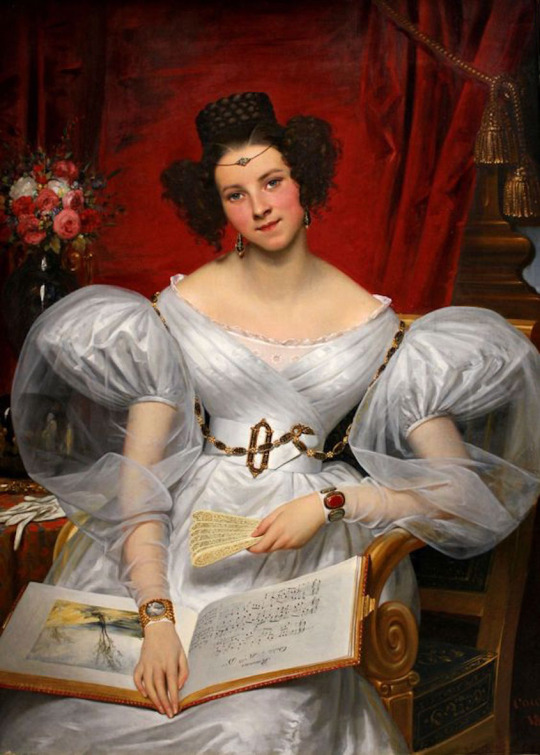




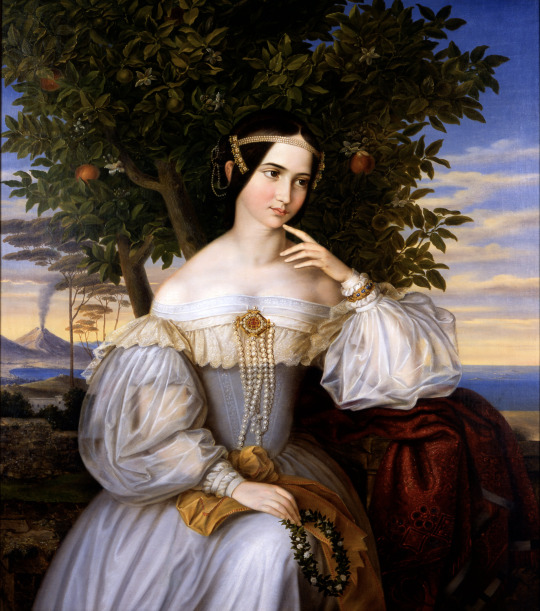
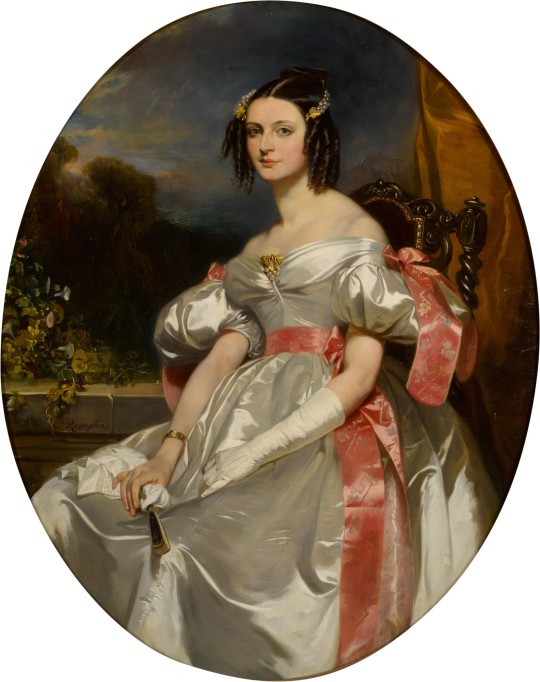
More pre-Victorian 1830s (from top to bottom) -
ca. 1830 Evening or wedding dress (location ?). From tumblr.com/andrayblue 1080X1350.
1831 Marquise Chasseloup-Laubat (probably Marie Augustine Antoinette Le Boucher des Fontaines) by Joseph-Désiré Court (Musée des Beaux-Arts de Rouen - Rouen, Normandie, France). From their Web site' enlarged by half 845X1181.
1830-1832 María Cristina de Borbón, Queen of Spain by José de Madrazo y Aguado (Prado). From their Web site 1280X1745.
1832 Marie Franziska von Freytag by ? (Salzburg Museum - Salzburg, Salzburgland, Austria). From tumblr.com/history-of-fashion 766X963.
1832 Amalie Klein by Friedrich von Amerling (Österreichische Galerie Belvedere - Wien, Austria). From tumblr.com/history-of-fashion; fixed spots & cracks throughout w Pshop 2893X3508.
1835 Illustration from La Mode by Paul Gavarni. From tumblr.com/clove-pinks 1650X2048.
1836 Marriage Portrait of Charlotte de Rothschild by Moritz Daniel Oppenheim (Israel Museum - Jerusalem, Jerusalem District, Israel). From Google Art Project.
Lady with Pink Sash by Camille Joseph Etienne Roqueplan (Sotheby's - 29Jan22 auction Lot 703) 1583X2000.
#1830s fashion#Romantic era fashion#Biedermeier fashion#Louis-Philippe fashion#natural waistline#Marquise Chasseloup-Laubat#Joseph-Désiré Court#cross over bodice#chemise#quarter-length puffed inner sleeves#long sheer outer sleeves#ferroniere#María Cristina de Borbón#court dress#Marie Franziska von Freytag#Apollo knot#Amalie Klein#Friedrich von Amerling#Gigot sleeves#Paul Gavarni#Charlotte de Rothschild#Moritz Daniel Oppenheim#Camille Joseph Etienne Roqueplan#waist band#full skirt
376 notes
·
View notes
Text
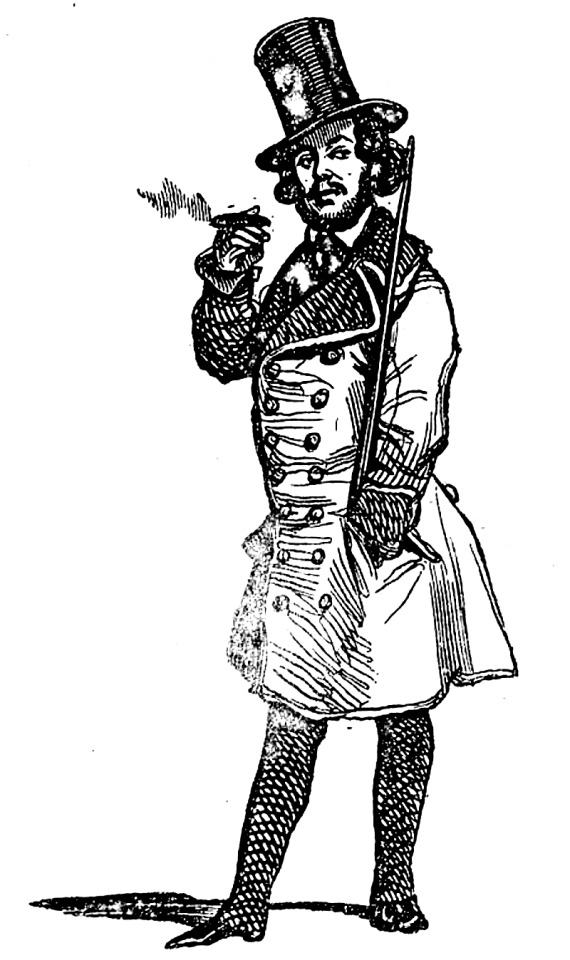
Rating: CUTE!
This street-wise flâneur of mid-century is doing what he does best: classic flânerie including fashionably strolling about in an ostentatious manner, smoking a cigar, and perhaps expressing a form of protest against bourgeois norms through "a counter-doctrine of inefficiency and uselessness — of which their flânerie was merely the most performative, emblematic expression."
This could be problem behaviour in some 19th century men, but the Parisian flâneur is only expressing natural instincts. Charles Baudelaire was an authority on this type of man, whom he called l'observateur passionné. Gavarni also sketched a flâneur.
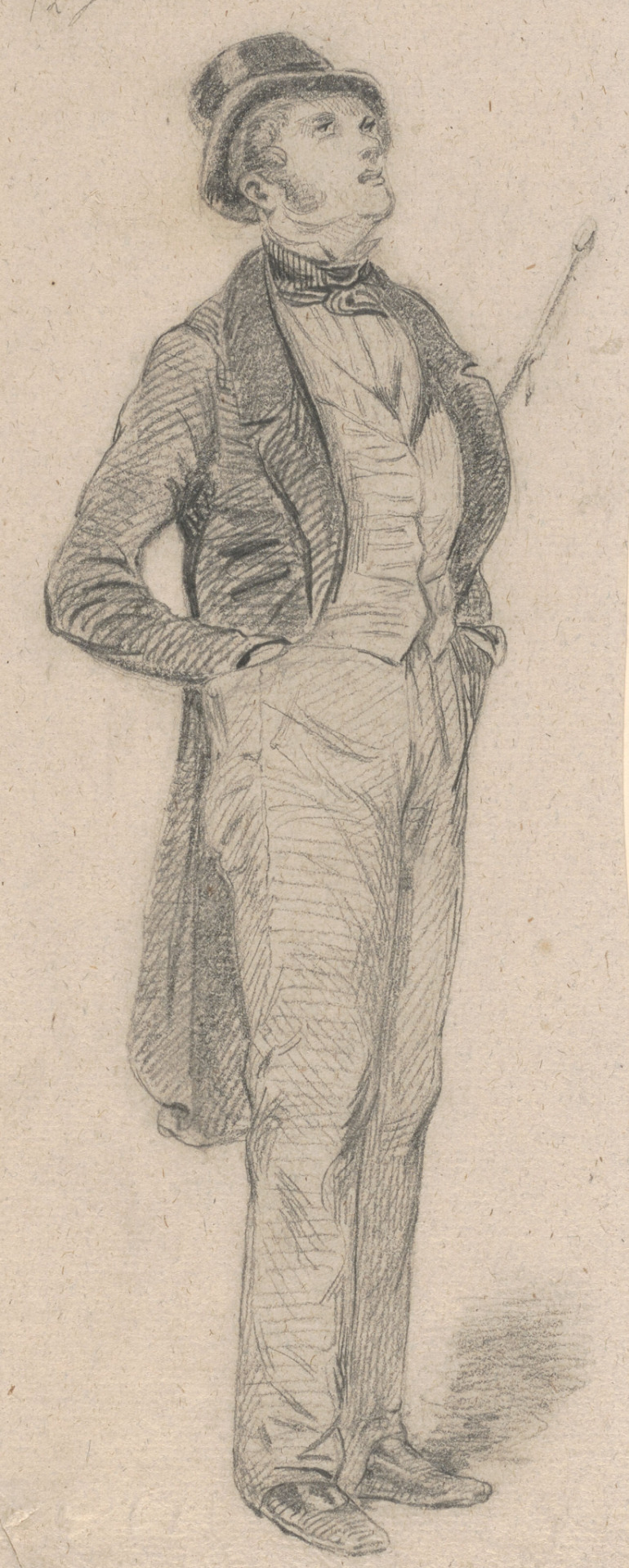
#is the 19th century man okay#mid 19th century#flâneur#paul gavarni#charles baudelaire#1840s#smoking#cute#1850s
107 notes
·
View notes
Text

Les Modes : revue mensuelle illustrée des arts décoratifs appliqués à la femme, no. 56, vol. 5, août 1905, Paris. La mod française en 1830, par Gavarni. Bibliothèque nationale de France
#Les modes#20th century#1900s#1900#periodical#fashion#cover#art plate#print#bibliothèque nationale de france#dress#gigot#1830#veil#Gavarni#august covers
16 notes
·
View notes
Text

L'Artiste, Toilette de Campagne, Septembre 1840 : Physionomie des modes., Paul Gavarni, 1840 (x)
#vintage fashion plates#french fashions#ilovethis#vintage fashion#victorian fashion#fashion history#parasol#pink and green#rijksmuseum#paul gavarni
19 notes
·
View notes
Note
i wanted to let u know that i loved that one rossier hair curler art of urs so much that over the weekend i bought a whole canvas and painted a picture inspired by that one background penguin painting hanging on the wall in ur drawing and we now have childlike whimsical penguins on our living room wall so!!! thank you for making art so good it made me want to make art in turn!!! i hope u have a good week :)
OH MY GOD!! THIS IS SO SO AWESOME!!
you actually made me so emotional rn 😭 i had so much fun-and-giggles when drew the background pictures, so i hope you had it too!
i definitely would like to see the painting if you would like to share it!! <3

#literally sobbing i love sm how art can inspire art and again and again#like my thing was inspired by Paul Gavarni's illustration and now the chain continues. beautiful!!#my ask
15 notes
·
View notes
